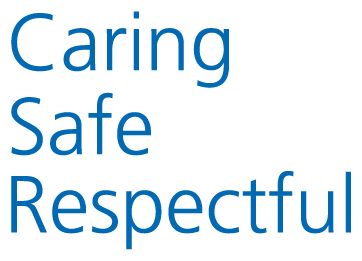What this leaflet tells you
You were recently tested (screened) for Meticillin Resistant Staphylococcus aureus (MRSA) and the results of your screen show that your skin is colonised with MRSA.
MRSA are bacteria that are resistant to common antibiotics and can cause infections, such as wound infections after surgery.
This means that before your operation or procedure you must follow the five-day antiseptic programme explained in this leaflet or inside your treatment pack.
Antiseptic programme
This programme aims to reduce the MRSA bacteria on your skin before you have surgery, in order to reduce the risk of developing an infection. Your surgery may be delayed if you have not completed this antiseptic programme immediately beforehand.
What do I need to do next?
You, or someone on your behalf, will need to collect a treatment pack from your local hospital. These packs will usually be collected from the preadmission clinic that you attended, or otherwise, as stated in the letter. This is your MRSA decolonisation pack.
When do I start treatment?
Please start the treatment 5 days before you are due to come into hospital and use it every day until you are admitted. Please bring the pack with you when you are admitted and the completed treatment card to show that you have used the treatment.
If you receive the letter less than 5 days before your admission date, then please start your treatment immediately.
Your surgery may be delayed if you have not started this treatment course before admission.
What does it involve?
The treatment involves the application of foam to your hair and body and gel in your nose for five days. You may also have to use a mouthwash.
MRSA decolonisation regime
If possible, you must do the following each day before applying the treatment:
Shower (or bathe) as normal. Wash your body and face paying particular attention to your hairline, armpits, groin, feet and toes
Wash your hair with shampoo
Ensure all soap residues are washed off thoroughly
Thoroughly dry your body
Towel dry hair
Using the antiseptic products:
Body – every day for 5 days Apply the foam to clean dry skin. Ensure all areas of the skin are covered and rub in until dry (do NOT wash off).
Hair – every day for 5 days Apply the foam to wet or dry hair to cover the scalp, massage into the scalp and hair for 3-5 minutes. Dry hair as normal (do NOT wash out).
Nose – three times a day for 5 days Apply a small pea sized amount of gel on a cotton bud or your little finger and apply to the inside of each nostril. Use a NEW cotton bud or different finger for each nostril. Press the sides of your nose together to help spread the gel in the nose.
Mouth – Twice daily for 5 days Gargle or rinse around your mouth with 10mls of mouthwash for 1-2 minutes. Do NOT swallow.
Clothing Change your clothes, including your pyjamas or nightdress, every day. Tumble drying and ironing also help to kill any bacteria.
Bed Linen You should also change your sheets, duvet covers and pillowcases every day if possible. This is because your skin, which carries MRSA, is constantly rubbed off and collects in bed linen and clothes.
Side effects of treatment
In patients who have used this treatment before, they have found it easy to use and well tolerated, even by people with sensitive skin. If you develop a rash or itchy sore skin, you should stop the treatment and ask your clinic nurse or GP for advice. If you suffer from eczema, it is unlikely that this treatment will make your eczema worse. If your skin does become sore, there are alternative products that we can use.
Close Contacts
MRSA can be passed from person to person. However, this is not normally a problem at home or work provided family or friends are not too ill and do not have open wounds. Ideally, you should not share your towel, flannel or toothbrush with others.
Risks
Not commencing or completing the MRSA decolonisation regime prior to your operation/procedure can put you at greater risk of developing an MRSA infection.
Benefits
The benefits of the MRSA decolonisation regime are that not only will it reduce your risk of developing an MRSA infection, it will also reduce the risk of cross infection to other patients.



